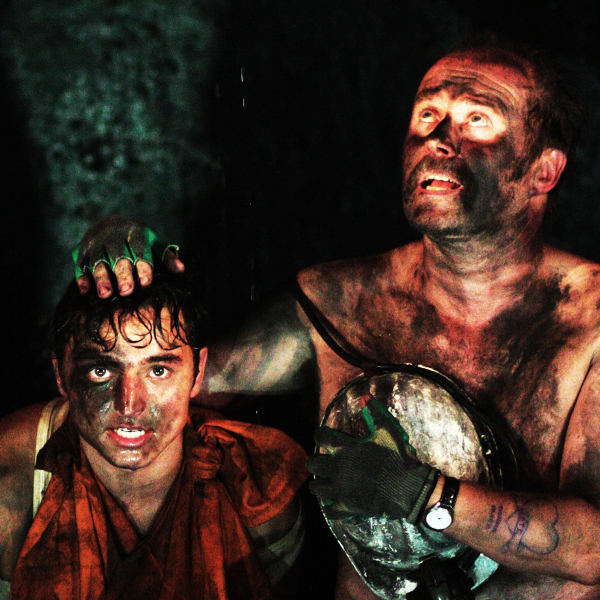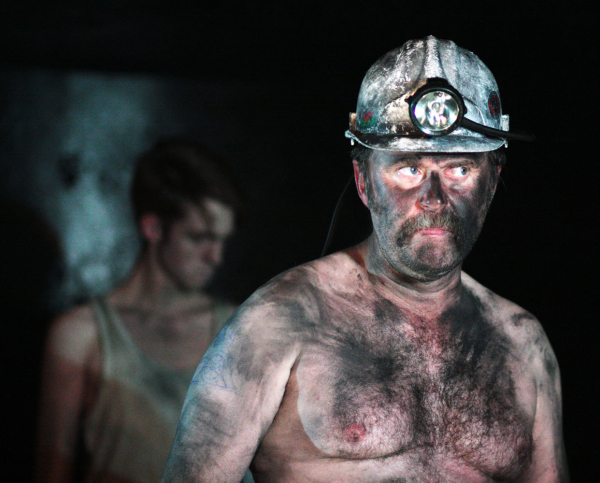Land of Our Fathers (Trafalgar Studios)

© Flavia Fraser-Cannon
Chris Urch's Land of Our Fathers powerfully explores what happens to the human psyche and comradeship when faced with physical danger and the threat of a slow, lingering death.
Trapped in a mineshaft after an electrical explosion, the team of six miners initially believe they will be rescued within hours. As hours become days, their optimism and expletive-strewn macho banter turn to dark desperation. Hope is renewed and dashed, secrets are revealed, and power struggles and insanity start to take hold.
The ensemble of six work brilliantly together, all completely convincing in their characters. Clive Merrison gives the old hand, Bomber, an avuncular air. Robert East, as the Polish war-refugee, Hovis, shows a quiet strength from previous struggles, while Joshua Price gives the fresh-faced novice, Mostyn, an initial bouncy innocence that is quickly replaced by a grown-up despair. Patrick Brennan (Chopper, the leader of the team), Kyle Rees (Curly) and Taylor Jay-Davies (Chewy) are equally as strong, and all are beautifully distinct, well-rounded characters of depth and conviction.
Signe Beckmann's set perfectly evokes the claustrophobia and fear of a working life underground, with its grimy coalface enhanced by the dingy, oppressive lighting of Hartley T A Kemp. The background drone and occasional sound of of far-off potentially life-saving drilling add an element of tension, if any more were needed.
It's not all gritty reality and death. There are elements of humour as the men give in to a sing-song of showtunes, play games, or practise a few dance steps to pass the time. But these become fewer as the food runs out and starvation and dehydration push them to consider extreme solutions that fracture the cohesion of the group.
As powerfully realised as Land of Our Fathers is, it doesn't escape unflawed. The second act becomes increasingly surreal as the group bring out their anger and recriminations in loud, physical rants and arguments that seem improbable given the men's likely physical weakness after many days stuck underground with no sustenance. After such a convincing first act, this detracts from the initial realism of the drama. It works overall though, leaving us to wonder why we ever sent men underground in such terrible, life-threatening conditions.












